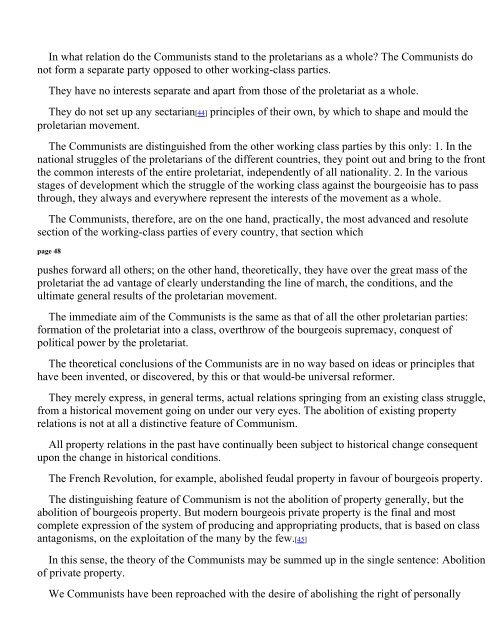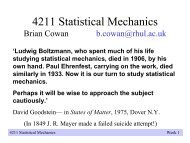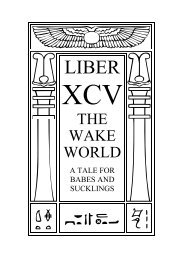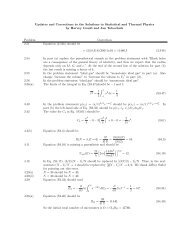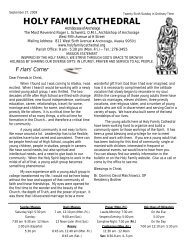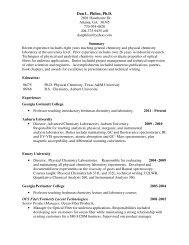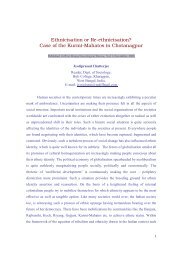Manifesto of the Communist Party - WebRing
Manifesto of the Communist Party - WebRing
Manifesto of the Communist Party - WebRing
You also want an ePaper? Increase the reach of your titles
YUMPU automatically turns print PDFs into web optimized ePapers that Google loves.
In what relation do <strong>the</strong> <strong>Communist</strong>s stand to <strong>the</strong> proletarians as a whole? The <strong>Communist</strong>s do<br />
not form a separate party opposed to o<strong>the</strong>r working-class parties.<br />
They have no interests separate and apart from those <strong>of</strong> <strong>the</strong> proletariat as a whole.<br />
They do not set up any sectarian[44] principles <strong>of</strong> <strong>the</strong>ir own, by which to shape and mould <strong>the</strong><br />
proletarian movement.<br />
The <strong>Communist</strong>s are distinguished from <strong>the</strong> o<strong>the</strong>r working class parties by this only: 1. In <strong>the</strong><br />
national struggles <strong>of</strong> <strong>the</strong> proletarians <strong>of</strong> <strong>the</strong> different countries, <strong>the</strong>y point out and bring to <strong>the</strong> front<br />
<strong>the</strong> common interests <strong>of</strong> <strong>the</strong> entire proletariat, independently <strong>of</strong> all nationality. 2. In <strong>the</strong> various<br />
stages <strong>of</strong> development which <strong>the</strong> struggle <strong>of</strong> <strong>the</strong> working class against <strong>the</strong> bourgeoisie has to pass<br />
through, <strong>the</strong>y always and everywhere represent <strong>the</strong> interests <strong>of</strong> <strong>the</strong> movement as a whole.<br />
The <strong>Communist</strong>s, <strong>the</strong>refore, are on <strong>the</strong> one hand, practically, <strong>the</strong> most advanced and resolute<br />
section <strong>of</strong> <strong>the</strong> working-class parties <strong>of</strong> every country, that section which<br />
page 48<br />
pushes forward all o<strong>the</strong>rs; on <strong>the</strong> o<strong>the</strong>r hand, <strong>the</strong>oretically, <strong>the</strong>y have over <strong>the</strong> great mass <strong>of</strong> <strong>the</strong><br />
proletariat <strong>the</strong> ad vantage <strong>of</strong> clearly understanding <strong>the</strong> line <strong>of</strong> march, <strong>the</strong> conditions, and <strong>the</strong><br />
ultimate general results <strong>of</strong> <strong>the</strong> proletarian movement.<br />
The immediate aim <strong>of</strong> <strong>the</strong> <strong>Communist</strong>s is <strong>the</strong> same as that <strong>of</strong> all <strong>the</strong> o<strong>the</strong>r proletarian parties:<br />
formation <strong>of</strong> <strong>the</strong> proletariat into a class, overthrow <strong>of</strong> <strong>the</strong> bourgeois supremacy, conquest <strong>of</strong><br />
political power by <strong>the</strong> proletariat.<br />
The <strong>the</strong>oretical conclusions <strong>of</strong> <strong>the</strong> <strong>Communist</strong>s are in no way based on ideas or principles that<br />
have been invented, or discovered, by this or that would-be universal reformer.<br />
They merely express, in general terms, actual relations springing from an existing class struggle,<br />
from a historical movement going on under our very eyes. The abolition <strong>of</strong> existing property<br />
relations is not at all a distinctive feature <strong>of</strong> Communism.<br />
All property relations in <strong>the</strong> past have continually been subject to historical change consequent<br />
upon <strong>the</strong> change in historical conditions.<br />
The French Revolution, for example, abolished feudal property in favour <strong>of</strong> bourgeois property.<br />
The distinguishing feature <strong>of</strong> Communism is not <strong>the</strong> abolition <strong>of</strong> property generally, but <strong>the</strong><br />
abolition <strong>of</strong> bourgeois property. But modern bourgeois private property is <strong>the</strong> final and most<br />
complete expression <strong>of</strong> <strong>the</strong> system <strong>of</strong> producing and appropriating products, that is based on class<br />
antagonisms, on <strong>the</strong> exploitation <strong>of</strong> <strong>the</strong> many by <strong>the</strong> few.[45]<br />
In this sense, <strong>the</strong> <strong>the</strong>ory <strong>of</strong> <strong>the</strong> <strong>Communist</strong>s may be summed up in <strong>the</strong> single sentence: Abolition<br />
<strong>of</strong> private property.<br />
We <strong>Communist</strong>s have been reproached with <strong>the</strong> desire <strong>of</strong> abolishing <strong>the</strong> right <strong>of</strong> personally


